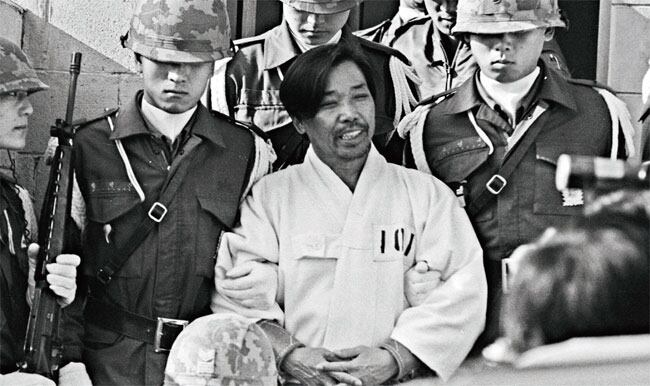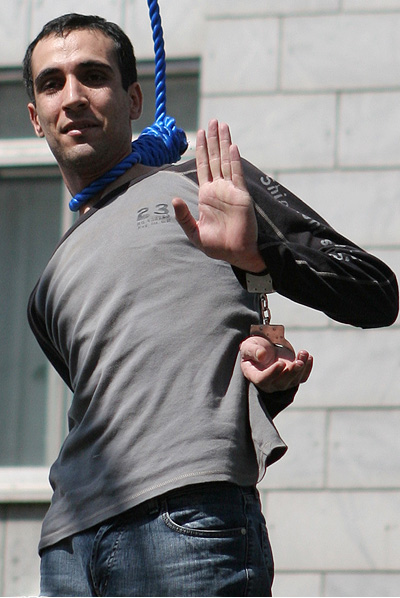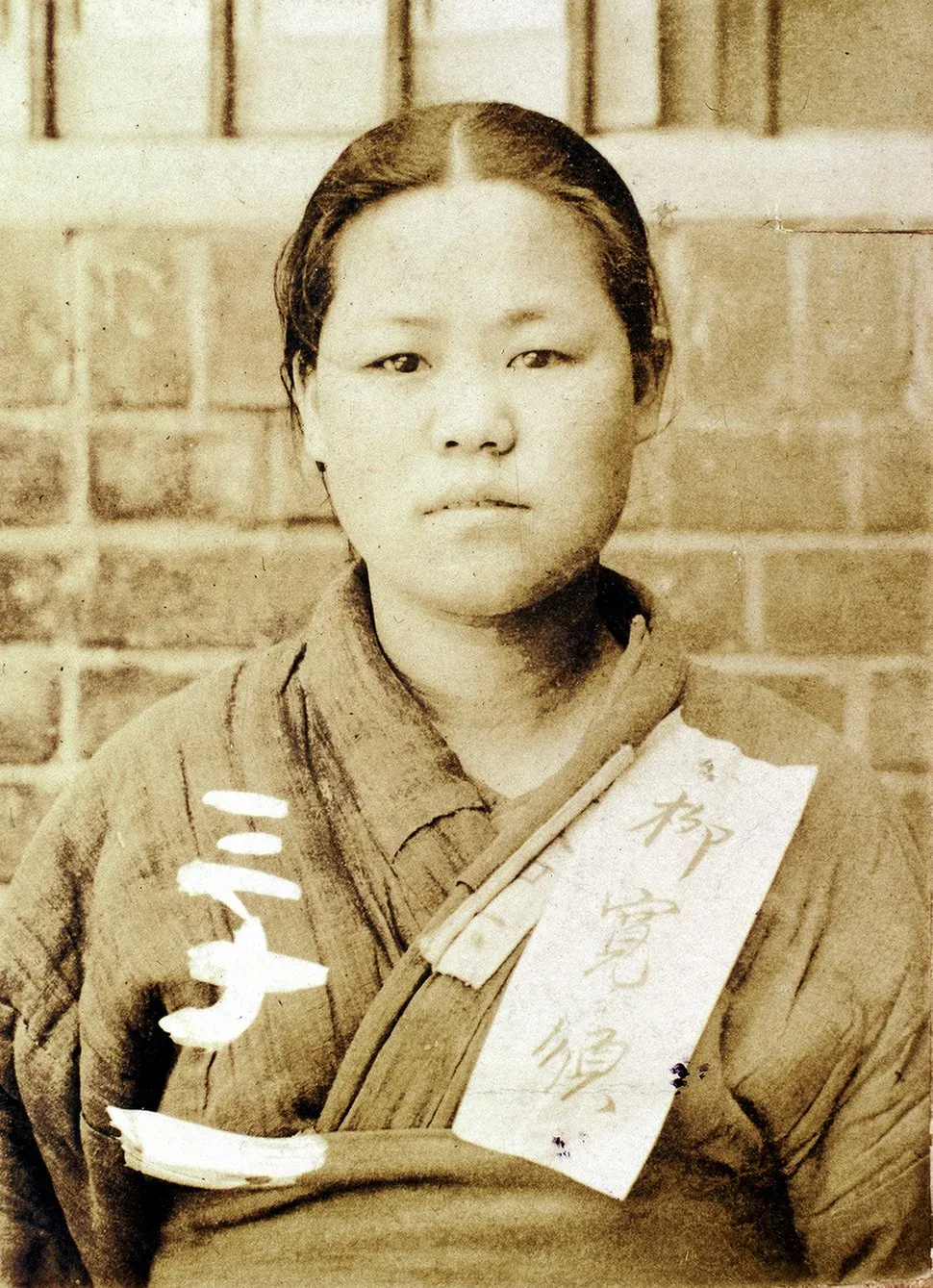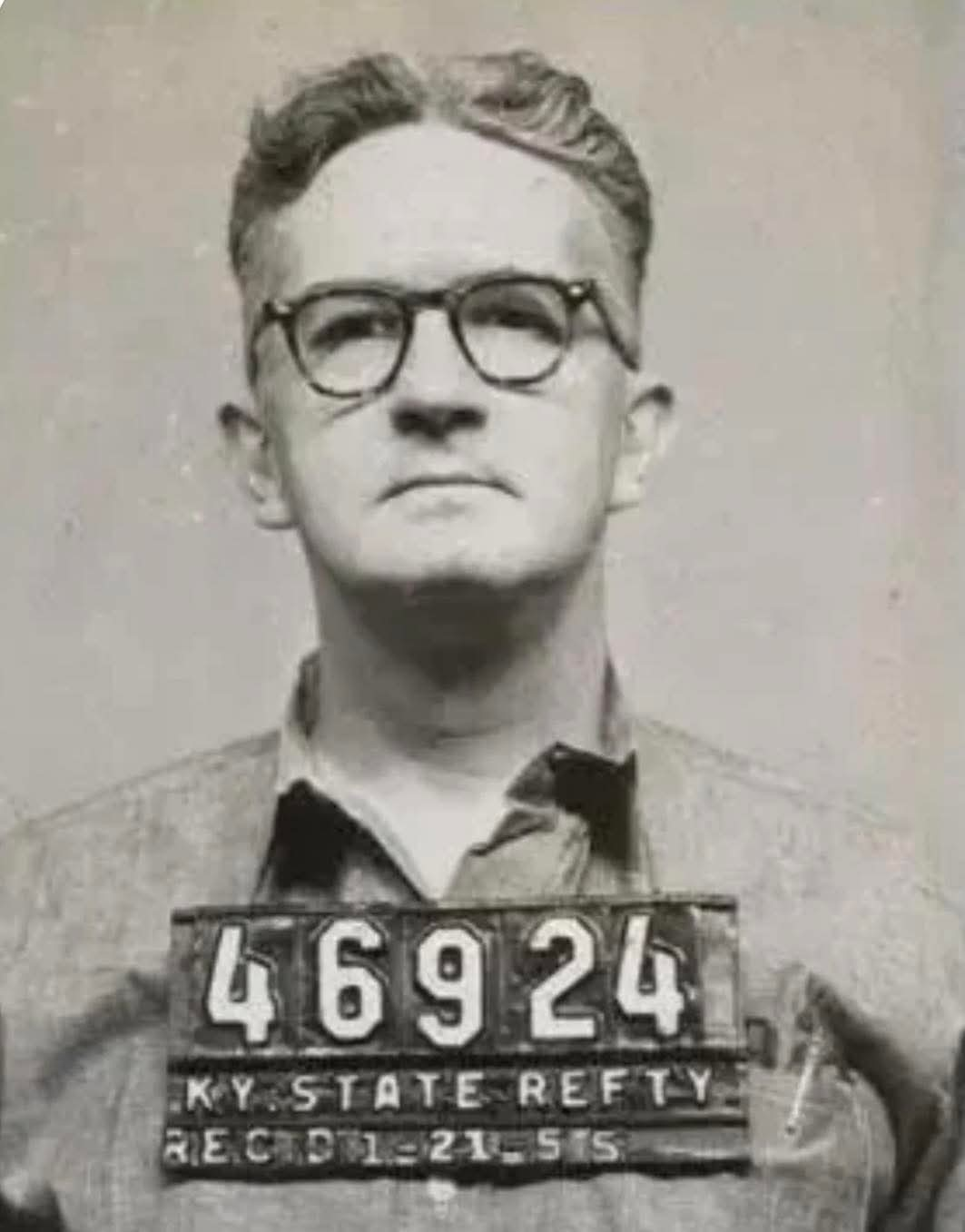1. Yan Yuan asked about ethical integrity. The Master said, "To overcome oneself and bring oneself back to Li (禮), that is ethical integrity. Even for a day, if you overcome yourself and bring yourself back to Li, the whole world will be restored with ethical integrity. It depends on you to practice ethical integrity. Do you need to depend on others?" Yan Yuan said, "What are the concrete steps to practice ethical integrity?" The Master said, "If it is not in accordance with Li, do not even look at it, do not lend your ears to it, do not talk about it, do not act on it." Yan Yuan said, "Although I am not smart, I shall mark these words."
顏淵問仁。子曰:「克己復禮為仁。一日克己復禮,天下歸仁焉。為仁由己,而由人乎哉?」顏淵曰:「請問其目。」子曰:「非禮勿視,非禮勿聽,非禮勿言,非禮勿動。」顏淵曰:「回雖不敏,請事斯語矣。」
2. Zhong Gong asked about ethical integrity. The Master said, "When you are outside, behave courteously as if you are having an audience with a great guest. When you employ people, treat them with respect as if you are conducting a solemn ceremony. What you yourself do not want, do not do it to others. Make sure that there is no grievance in the country and in your household." Zhong Gong said, "Although I am not smart, I shall mark these words."
仲弓問仁。子曰:「出門如見大賓,使民如承大祭。己所不欲,勿施於人。在邦無怨,在家無怨。」仲弓曰:「雍雖不敏,請事斯語矣。」
3. Si Ma Niu asked about ethical integrity. The Master said, "He who has ethical integrity does not say much." Si Ma Niu said, " 'Not saying much'? Is this ethical integrity?" The Master said, "To do what you say is difficult enough. Should you not be cautious in what you say?"
司馬牛問仁。子曰:「仁者其言也訒(인 ren, homophone of 仁 with different tone)。」曰:「其言也訒,斯謂之仁已乎?」子曰:「為之難,言之得無訒乎?」
4. Si Ma Niu asked about noble man. The Master said, "A noble man does not worry, is not ashamed." Si Ma Niu said, " 'No worry, no shame'? Is this what noble man is about?" The Master said, "When you look at yourself and find no blemish, why would you worry, why should you be ashamed?"
司馬牛問君子。子曰:「君子不憂不懼。」曰:「不憂不懼,斯謂之君子已乎?」子曰:「內省不疚,夫何憂何懼?」
5. Si Ma Niu was unhappy and said, "Everybody has brothers. But I am all alone." Zi Xia said, "I heard thus: Life and death take their course as ordained. Wealth and poverty are made in Heaven. A noble man will tread cautiously and will not make mistakes. A noble man will respect people and abide by Li. Within the four seas, everyone is your brother. How can a noble man worry about not having a brother?"
司馬牛憂曰:「人皆有兄弟,我獨亡。」子夏曰:「商聞之矣:死生有命,富貴在天。君子敬而無失,與人恭而有禮。四海之內,皆兄弟也。君子何患乎無兄弟也?」
[Actually, Si Ma Niu seems to have a brother, 桓魋 Huan Tui, who attempted to assassinate Confucius. Analect 7.23. Zuo Zhuan, Duke Ai, 14]
6. Zi Zhang asked about brilliance. The Master said, "When insidious calumnies and piercing accusations have no effect, that is brilliance. When insidious calumnies and piercing accusations have no effect, you may call it far-reaching as well.
子張問明。子曰:「浸潤之譖,膚受之愬,不行焉。可謂明也已矣。浸潤之譖膚受之愬不行焉,可謂遠也已矣。」
7. Zi Gong asked about governing. The Master said, "It is to have enough to eat, to have enough soldiers and to have people's confidence." Zi Gong said, "If you have to discard one, which one should go first?" The Master said, "Get rid of soldiers." Zi Gong said, "If you have to discard one more, which of the remaining two should go first?" The Master said, "Forget about food. People die all the time. But when people have no confidence, the government cannot stand."
子貢問政。子曰:「足食。足兵。民信之矣。」子貢曰:「必不得已而去,於斯三者何先?」曰:「去兵。」子貢曰:「必不得已而去,於斯二者何先?」曰:「去食。自古皆有死,民無信不立。」
8. Ji Zi Cheng said, "A noble man should focus on substance. What's the point of sophistication?" Zi Gong said, "Alas, what you say about a noble man is revealing of you. Too late to undo the damage done by your speech. Sophistication is not different from substance. Substance is not different from sophistication. Tiger or leopard hide stripped of hair is not different from dog or lamb hide stripped of hair."
棘子成曰:「君子質而已矣,何以文為?」子貢曰:「惜乎!夫子之說,君子也。駟不及舌。文猶質也,質猶文也。虎豹之鞟,猶犬羊之鞟。」
9. Duke Ai asked You Ruo, "It is a year of famine and the government does not have enough to spend. What to do?" You Ruo answered, "Why not reduce the tax rate to 1/10?" Duke Ai said, "Even with the current rate of 2/10, I do not have enough. How can I offer further tax cut?" You Ruo replied, "When people have enough, how can the ruler not have enough? When people have not enough, how can the ruler have enough?"
哀公問於有若曰:「年饑,用不足,如之何?」有若對曰:「盍徹乎?」曰:「二,吾猶不足,如之何其徹也?」對曰:「百姓足,君孰與不足?百姓不足,君孰與足?」
10 . Zi Zhang asked about supreme virtue and about how to avoid confusion. The Master said, "With loyalty and trustworthiness as your main focus, adjust yourself to be in the right. That is supreme virtue. When you love something you desire it to live. When you hate something, you desire it to die. When you want it to live and at the same time want it to die, that's confusion. As the poem (詩·小雅·我行其野篇) has it, 'though you don't have wealth, you do have a variety of girls.' "
子張問崇德、辨惑。子曰:「主忠信,徙義,崇德也。愛之欲其生,惡之欲其死。既欲其生,又欲其死,是惑也。『誠不以富,亦祗以異。』」
11. Duke Jing of Qi asked about governing. Confucius said, "A ruler should be a ruler, a minister should be a minister, a father should be a father and a son should be a son." The Duke said, "Lovely answer! If a rule is not a rule, a minister is not a minister, a father is not a father and a son is not a son, how can I enjoy what I have?"
齊景公問政於孔子。孔子對曰:「君君,臣臣,父父,子子。」公曰:「善哉!信如君不君,臣不臣,父不父,子不子,雖有粟,吾得而食諸?」
12. The Master said, "If there is a person who can decide a case having heard only one side, You (由) is such a person, isn't he?" Zi Lu says yes without hesitation.
子曰:「片言可以折獄者,其由也與?」子路無宿諾。 [rash, brash, rough, tough]
13. The Master said, "In handling litigations, I am like others. Make sure that there is no litigation!"
子曰:「聽訟,吾猶人也,必也使無訟乎!」
14. Zi Zhang asked about governing. The Master said, "Be diligent. Act loyally."
子張問政。子曰:「居之無倦,行之以忠。」
15. The Master said, "When a noble man learns broadly and refines himself, and when he constrains himself with Li, how can he be overstepping?"
子曰:「君子博學於文,約之以禮,亦可以弗畔矣夫!」 (雍也, 6.27)
16. The Master said, "A noble man brings out the best in people. He does not bring out the worst in people. The petty and the lowly do the opposite."
子曰:「君子成人之美,不成人之惡。小人反是。」
17. Mr Ji Kang asked about governing. Confucius answered, "It is to be upright. If you lead by being an upright example, who would dare to be corrupt?"
季康子問政於孔子。孔子對曰:「政者,正也。子帥以正,孰敢不正?」
18. Mr Ji Kang was concerned about the problem of theft. He asked Confucius. Confucius answered, "If you yourself do not have desires, people won't steal even if they are given a reward for stealing."
季康子患盜,問於孔子。孔子對曰:「苟子之不欲,雖賞之不竊。」
19.Mr Ji Kang asked about governing by saying the following to Confucius: "Suppose those who are lawless are killed so that the proper way is restored. How about that?" Confucius answered, "You say you are governing. Why would you use killing? If you yourself desire to do good, then people will be good. A ruler is like wind. The petty and the lowly are like grass. When wind blows above the grass, the grass will bend."
季康子問政於孔子曰:「如殺無道,以就有道,何如?」孔子對曰:「子為政,焉用殺?子欲善,而民善矣。君子之德風,小人之德草。草上之風,必偃。」
20. Zi Zhang asked, "What should an officer do so that he can be called an accomplished person?" The Master said, "What do you mean by 'accomplished'?" Zi Zhang answered, "Renowned in the country, renowned in the family." The Master said, "That is renown. It is different from being 'accomplished'. An accomplished person has the straightforward basic quality and finds delight in righteousness. He cautiously observes people's speeches and appearances. He is considerate to people who are below him. Such a person is accomplished wherever he may be. A renowned person puts on an appearance of having ethical integrity but his actions are against it. He remains and indulges in his position without self reflection. Such a person is bound to be renowned in the country and in the family."
子張問:「士何如斯可謂之達矣?」子曰:「何哉,爾所謂達者?」子張對曰:「在邦必聞,在家必聞。」子曰:「是聞也,非達也。夫達也者,質直而好義,察言而觀色,慮以下人。在邦必達,在家必達。夫聞也者,色取仁而行違,居之不疑。在邦必聞,在家必聞。」
21. Fan Chi came along to the picnic at the rain altar. He said, "May I ask about supreme virtue, about how to correct insidious flaws, and about how not to be misled?" The Master said, "Good question! To serve first without thinking about what you will get. Isn't it the supreme virtue? Tackle your own faults rather than other people's faults. Isn't it a way to correct insidious flaws. Propelled by a morning's indignation, if you forget your own safety and the safety of your parents, are you not misled?
樊遲從遊於舞雩之下,曰:「敢問崇德、脩慝、辨惑。」子曰:「善哉問!先事後得,非崇德與?攻其惡,無攻人之惡,非脩慝與?一朝之忿,忘其身,以及其親,非惑與?」
22. Fan Chi asked about ethical integrity. The Master said, "It means to love people". Fan Chi asked about knowledge. The Master said, "It means to know people". Fan Chi didn’t get it. The Master said, "Employ the upright to grind off the crooked. Then you can straighten up the crooked." Fan Chi went back to his abode. When he saw Zi Xia, he said, "Well, I saw the Master and asked about knowledge. The Master said, 'Employ the upright to grind off the crooked. Then you can straighten up the crooked.' What does that mean?" Zi Xia said, "A rich remark indeed! When Shun had the whole world, he chose and employed Gao Yao. People who lack ethical integrity were kept at distance. When Tang had the whole world, he chose and employed Yi Yin. Those who lack ethical integrity were kept at distance.
樊遲問仁。子曰:「愛人。」問知。子曰:「知人。」樊遲未達。子曰:「舉直錯諸枉,能使枉者直。」樊遲退,見子夏。曰:「鄉也吾見於夫子而問知,子曰,『舉直錯諸枉,能使枉者直』,何謂也?」子夏曰:「富哉言乎!舜有天下,選於眾,舉皋陶,不仁者遠矣。湯有天下,選於眾,舉伊尹,不仁者遠矣。」
23. Zi Gong asked about friendship. The Master said, "Give sincere advice and lead them to the good. If it is not possible, then stop being friends. Do not humiliate yourself.
子貢問友。子曰:「忠告而善道之,不可則止,無自辱焉。」
24. Zeng Zi said, "A noble man would meet friends thanks to his erudition. A noble man's ethical integrity is reinforced thanks to his friends."
曾子曰:「君子以文會友,以友輔仁。」





